SUNSET PARK — Sunset Park leaders are up in arms over the mayor’s refusal to meet with them to discuss the city’s neighborhood investments in light of the Industry City rezoning process.
The refusal raises significant questions about the rezoning’s future, as Menchaca has declared it would only go through if the de Blasio administration agreed to specific investments in Sunset Park. Without that commitment, the councilmember will either have to scrap the plan — or reconsider his ultimatum.
In a joint statement released Monday, Councilmember Carlos Menchaca and Community Board 7 Chair Cesar Zuñiga called Mayor Bill de Blasio’s snub “offensive” and a “slap in the face.”DAILY TOP BROOKLYN NEWSNews for those who live, work and play in Brooklyn and beyond
“We do not want to believe that this mayor only cares about upzoning land when he can claim credit for it, especially when he campaigned and constantly invokes the need to protect vulnerable New Yorkers from rich corporations,” Menchaca and Zuñiga said. “By not agreeing to meet and discuss a rezoning proposed by an incredibly powerful consortium of private developers and financiers, he is making a mockery of those claims.”
Menchaca and Zuñiga initially sent a letter to the mayor on Nov. 4 asking him to send his top advisers to the board to shed insight — and discuss the city’s investments — as residents consider the 172-page land use application. The letter said that Menchaca’s office will try again to set up a meeting.
On Dec. 13, Anita Laremont, executive director of the Department of City Planning, wrote to them on behalf of the mayor’s office effectively declining to meet, saying that Industry City is a private applicant and that the mayor’s office typically does not play a role in the ULURP process.
“As the private applicant, Industry City is responsible both for articulating the need and rationale for the actions it proposes and for responding to community concerns about its proposal,” Laremont wrote. “It is the role of the Community Board, the Borough President, the City Planning Commission, and the City Council to assess the appropriateness of a private application based on both local and citywide perspectives.”
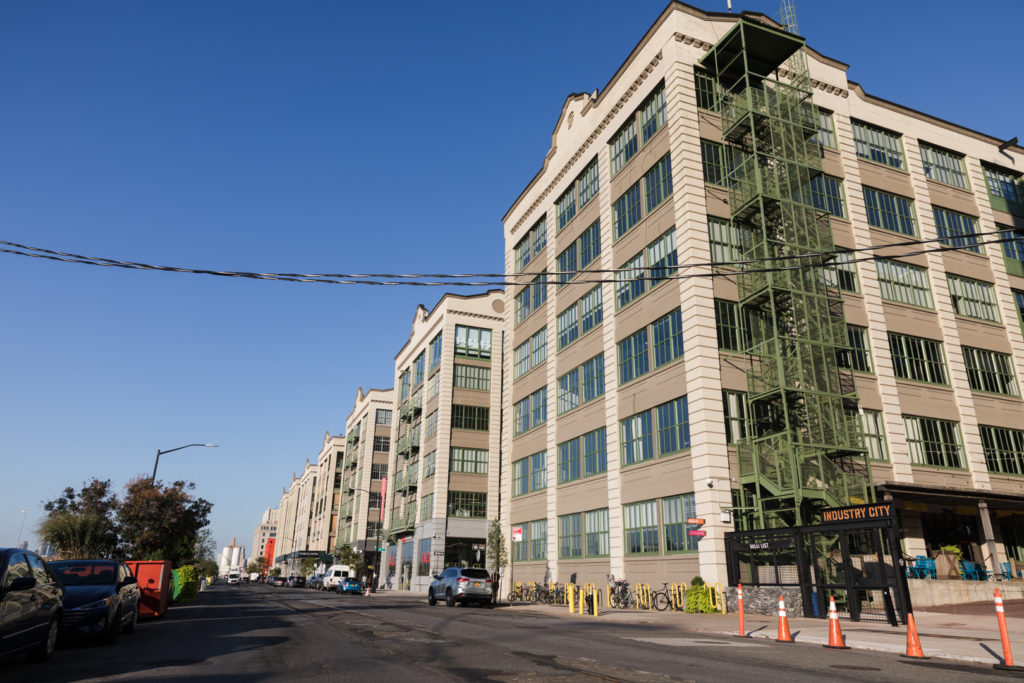
ebrooklyn media/Photo by Paul Frangipane
Menchaca and Zuñiga, however, said that the rezoning — which if approved, will encompass an area twice the size of the Freedom Tower — is “not any run-of-the-mill” proposal.” As the largest private application to rezone an industrial waterfront property in New York City’s history, the mayor must be more active, they argued.
“While we appreciate the mayor’s response, we are extremely disappointed by its lack of urgency, and the offensive implication that there is no role for the city to play simply because Industry City’s rezoning proposal is a private application — even though private applications are developed with the Department of City Planning’s guidance, and the scale of this particular proposal is unprecedented,” Menchaca and Zuñiga said.
Menchaca vowed that he would not support the expansion unless, among other requirements, the city increases its investment in Sunset Park.
Menchaca asked for mayoral support in expanding the Right to Counsel program to Sunset Park; funding a technical high school modeled on the STEAM Center at the Brooklyn Navy Yard; and reviewing a legislative package including mandatory job counts by the city for major rezonings. The legislative package is still being drafted.
In response to those requests, Laremont pointed to several city programs aimed at helping residents like the Certification of No Harassment pilot program. She also said the Department of Housing Preservation and Development, through financing programs, has preserved 448 affordable homes in the district, and that there are free legal services for tenants facing eviction.
Regarding building a new technical high school, she said the city is building four new capacity projects that will add elementary school seats and address overcrowding.
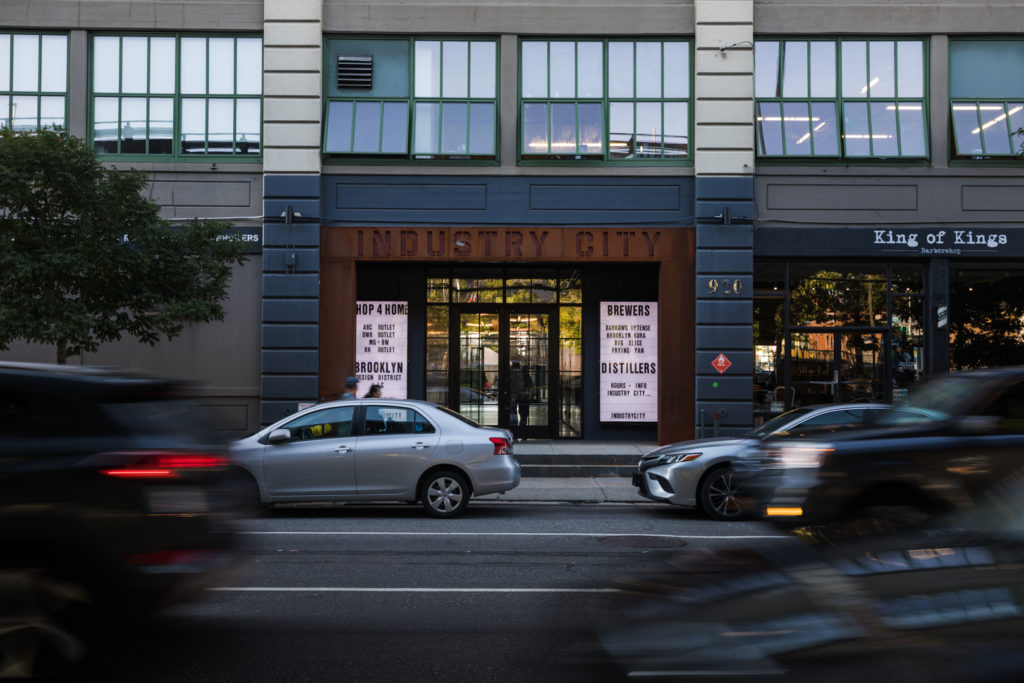
ebrooklyn media/Photo by Paul Frangipane
De Blasio’s rebuff calls into question whether Menchaca will be able to secure the necessary city investment that the councilman said had to be in place in order for him to approve the rezoning.
Menchaca wields outsize power in the rezoning battle, as the City Council has the final say on whether to approve or kill the application, and councilmembers usually vote in line with the representative whose district is affected.
Industry City’s rezoning application was filed on Oct. 28, setting off a seven-month public review of the $1 billion redevelopment that would add roughly 1.3 million square feet of space to the complex by 2027.
The land use application currently includes academic space and hotels, and expanding “innovation economy” maker spaces and retail. Backers say these changes would help bring in investment and tenants that will drive job growth. Industry City CEO Andrew Kimball said they expect to create more than 20,000 jobs through the redevelopment.
Critics of the plan, however, say the rezoning could dramatically reshape Sunset Park, exacerbating displacement and gentrification in the largely immigrant low-income neighborhood.
Menchaca and Zuñiga argued that if this is how the mayor has chosen to respond to their request, then it calls into question his commitment to “strengthening and preserving the city’s manufacturing and industrial integrity.”
“To expect a community, even one as engaged, organized, and ready as Sunset Park, to clarify these concerns on its own without any assistance from the City’s vast resources and expertise is a slap in the face,” they said. “It is also tone-deaf given that the majority of Sunset Park residents are people of color and nearly half of the population is foreign born.”
Following the mayor’s refusal to meet, members of Protect Sunset Park, a grassroots organization against the rezoning, urged Menchaca to plan for the neighborhood’s future with them instead of Industry City.
“Sunset Park residents now call on Councilmember Carlos Menchaca to keep his word and publicly announce a veto of the private plan and instead invite him to start public planning with and for Sunset Park residents,” said Antoinette Martinez. “Next year the city must submit a comprehensive waterfront plan for 2030. That’s the plan we need our councilmember to prioritize first.”
The mayor’s office and DCP did not immediately respond to requests for comment.
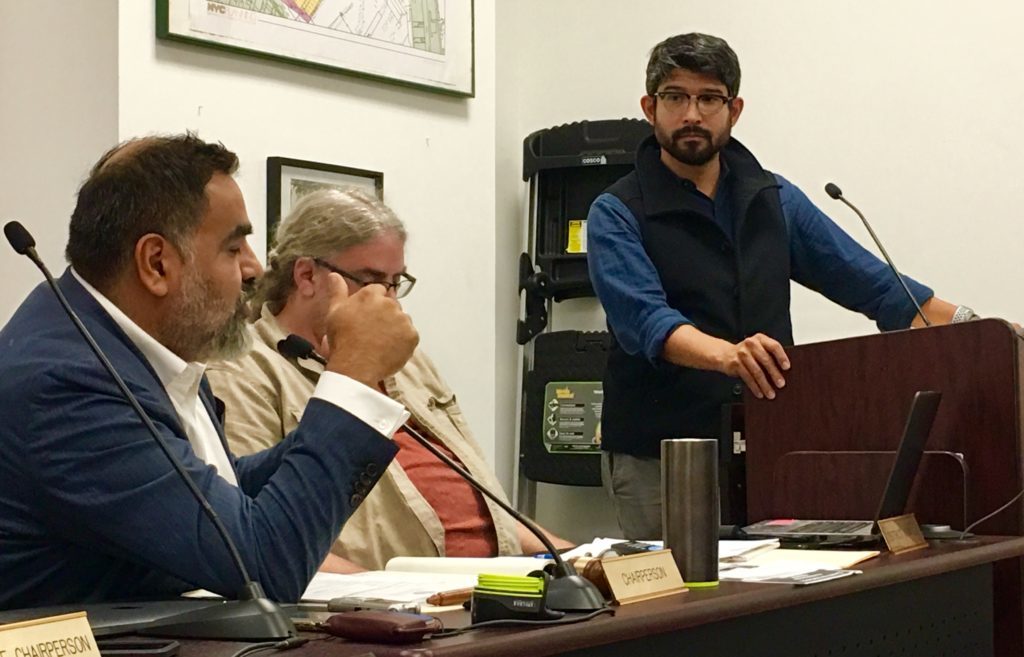
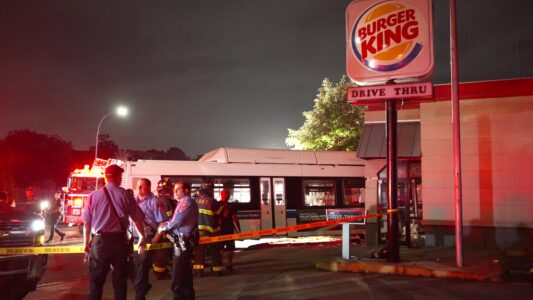 Bus crashes into Burger King
Bus crashes into Burger King 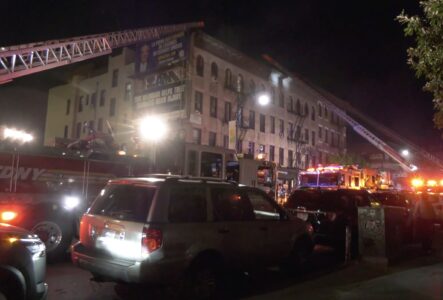 13 hurt in Fifth Avenue fire
13 hurt in Fifth Avenue fire